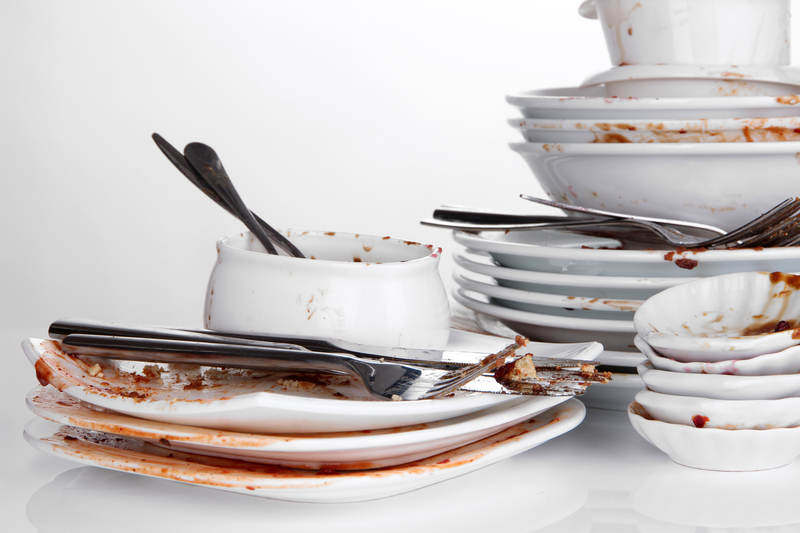Expert Advice on End of Tenancy Cleaning for Tenants
Posted on 26/08/2025
Expert Advice on End of Tenancy Cleaning for Tenants
Moving out of a rental property comes with many responsibilities, and among the most crucial is end of tenancy cleaning. This essential process not only ensures a smooth transition for the next occupants but is also key to securing your deposit. In this comprehensive guide, you'll discover expert advice, practical tips, and proven strategies to handle end of tenancy cleaning like a pro. Whether you're a first-time renter or a seasoned tenant, understanding the ins and outs of end of lease cleaning can save you stress, time, and money.
What is End of Tenancy Cleaning?
End of tenancy cleaning refers to a thorough cleaning process required when a tenant is moving out of a rented property. Unlike regular domestic cleaning, this cleaning is more intensive and covers every nook and cranny of the home. Landlords and letting agents expect a property to be returned in the same condition as when it was let, minus reasonable wear and tear, and will often withhold deposits if their standards are not met.
- Final clean before move-out
- Includes deep cleaning of all rooms, furniture, appliances, and fixtures
- Ensures compliance with the tenancy agreement
- Key factor in getting your full deposit back

Why Is End of Lease Cleaning Important?
Completing a proper end of tenancy clean is more than a matter of courtesy. There are several compelling reasons to focus on high-standard cleaning at the end of your tenancy:
- Deposit Retention: The return of your security deposit often hinges on how clean you leave the property. Most deposit disputes are due to inadequate cleaning.
- Good References: Leaving the property spotless increases your chances of receiving a positive reference for future rentals.
- Contractual Obligation: Many tenancy agreements stipulate that tenants must leave the property in good condition, often specifying the required level of cleanliness.
- Respect for Future Tenants: A thorough clean ensures the property is comfortable and welcoming for the next occupants.
DIY vs Professional End of Tenancy Cleaning
Tenants commonly face the decision between cleaning the property themselves or hiring a professional end of lease cleaning service. Both options have pros and cons.
Pros of DIY Cleaning
- Cost savings: You save on professional fees.
- Personal touch: You control what gets cleaned and how.
- Scheduling flexibility: Clean at your own pace, according to your timeline.
Cons of DIY Cleaning
- Time-consuming: Deep cleaning is a labor-intensive process.
- Risk of missing areas: Hard-to-see spots may get overlooked, resulting in possible deposit deductions.
- No cleaning guarantee: Landlords might reject the job if standards aren't met.
Benefits of Professional End of Tenancy Cleaning Services
- Experience and expertise: Professionals know exactly what landlords and agents look for.
- High-standard results: Use of industrial-grade cleaning equipment and supplies.
- Time-efficiency: The work is completed quickly and effectively.
- Cleaning certificate: Many agencies provide a receipt or certificate to prove the cleaning was done to a professional standard, which is accepted by most landlords.
Expert advice: If your deposit is considerable, or if the property is large or especially dirty, investing in professional end of tenancy cleaners is often the wisest option.
Essential End of Tenancy Cleaning Checklist
Whether you're doing the cleaning yourself or hiring professionals, following a checklist is crucial to ensure you meet all expectations. Below is a comprehensive end of tenancy cleaning checklist based on industry standards:
General Living Areas
- Dust and wipe down all surfaces, skirting boards, doors, and handles.
- Vacuum all carpets and mop hard floors.
- Clean windows, mirrors, and glass surfaces inside the property.
- Empty and wipe cupboards, drawers, and shelves.
- Remove all cobwebs from ceilings and corners.
- Clean light switches, sockets, and light fittings.
- Wipe radiators and vents.
- Check walls for stains and marks; clean if possible.
- Remove any rubbish from the property.
Kitchen
- Thoroughly clean all kitchen appliances, including oven, hob, microwave, kettle, and refrigerator (defrost if necessary).
- Degrease splashbacks and countertops.
- Empty and clean cupboards inside and out.
- Sanitize sinks, taps, and draining boards.
- Check for food residue and crumbs in hidden areas.
- Polish all stainless steel surfaces.
- Sweep and mop floors, especially around appliances.
Bathrooms and Toilets
- Descale and disinfect shower heads, taps, and tiles.
- Clean bath, shower enclosure, toilet, and all sinks.
- Polish mirrors and glass surfaces.
- Wipe bathroom cabinets and fixtures.
- Remove limescale and stains from all sanitary ware.
- Replace toilet rolls and empty bins.
Bedrooms
- Clean wardrobes, dressers, and bedside tables inside and out.
- Vacuum mattresses and under beds.
- Remove personal belongings and check for forgotten items.
- Dust lamp shades, curtain rods, and blinds.
Other Areas
- Clean staircases, bannisters, and landings.
- Wipe down internal doors and handles.
- Wash or vacuum doormats.
- Check all keys and remove stickers or hooks from walls.
Tips for a Successful End of Lease Clean
Expert advice for tenants:
- Start early: Begin cleaning a few days before your moving date to avoid last-minute stress.
- Use the right products: Invest in quality cleaning supplies for thorough and efficient results.
- Don't overlook appliances: Pay special attention to ovens, fridges, and washing machines.
- Photographic evidence: Take before and after photos of each room to document the property's condition.
- Check your tenancy agreement: Some contracts require a professional carpet clean or specific treatments for pets.
- Empty the property: Cleaning is much easier and more thorough when furniture and belongings are out of the way.
- Inspect with your landlord: Arrange a mutual inspection after cleaning to agree on the property's condition.
Common Mistakes Tenants Make During End of Tenancy Cleaning
Even with the best intentions, tenants often make end of lease cleaning mistakes that can cost them part of their deposit. Here are some to avoid:
- Missing hidden areas: Clean behind and under appliances, skirting boards, and inside vents.
- Leaving personal items behind: Check all cupboards, drawers, and closets to ensure nothing is forgotten.
- Forgetting to clean windows: Both inside and exterior if stipulated in your agreement.
- Not addressing stains or damages: Attempt to fix or clean where possible and inform your landlord of any damages to avoid unpleasant surprises.
- Ignoring outdoor spaces: Balconies, patios, and gardens should be swept and tidied.

End of Tenancy Cleaning FAQs
How long does end of tenancy cleaning take?
Duration depends on the property size and condition. A studio flat might take 3-4 hours, while a large house may require a full day or a team of professionals. Plan ahead and allocate sufficient time.
Is professional cleaning always required?
Not all tenancy agreements require a professional clean, but if specified, you must comply. Even when not mandatory, a professional clean is highly recommended for sparkling results and a trouble-free deposit return.
Should I provide cleaning receipts?
Yes, if your landlord or agent requests proof or if your agreement specifies professional cleaning. Keep your receipts for reference.
What if my landlord is unhappy with the cleaning?
If you hired a professional company, contact them--many offer re-cleaning guarantees. If you cleaned yourself, address the problem areas promptly to avoid chargebacks.
Conclusion: Secure Your Deposit With Sparkling Results
End of tenancy cleaning can feel overwhelming, but with the right approach, expert tips, and a solid checklist, you can leave your rental property spotless. This not only leaves a good impression but ensures you recover your full deposit. Whether you tackle the clean yourself or engage professional end of lease cleaners, attention to detail and preparation are the keys to success.
For peace of mind and guaranteed outcomes, many tenants opt for a professional end of tenancy cleaning service. However, with the right guidance, a thorough DIY clean is also achievable. Remember, a well-maintained and clean property reflects positively on you as a tenant and makes the moving process smoother for everyone involved.
Ready for your move? Follow this expert advice and your next end of tenancy cleaning will be stress-free and successful!





